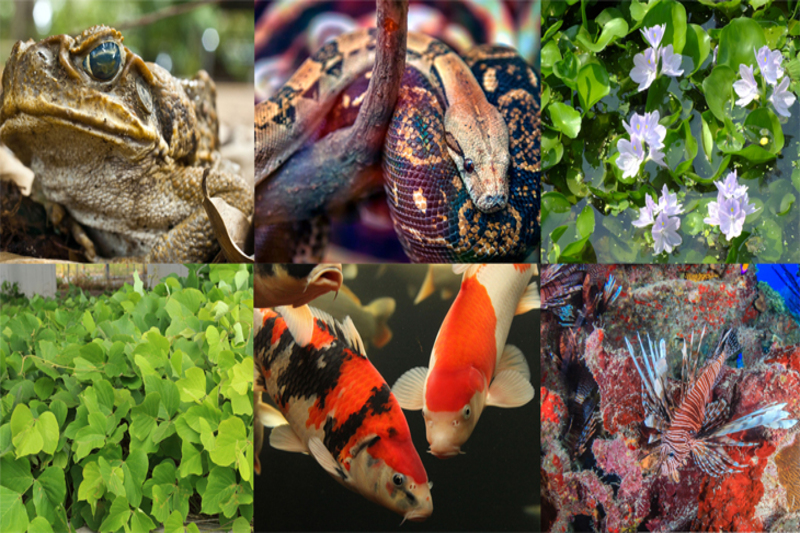A UN study carried out over four years across the globe reveals the devastating economic impact of invasive species.
Invasive alien species, introduced by humans, are spreading more and more rapidly around the world. This is causing enormous damage, according to a report by the UN published on Monday.
The Intergovernmental Science Policy Platform on Biodiversity and Ecosystem Services (IPBES), nicknamed the IPCC for biodiversity, says it's a tidal wave that humanity has so far proved relatively powerless to stem.
From plants to mammals, marine animals and insects, alien species are creating environmental chaos that the costs global economy €391bn per year.
How are invasive species damaging the economy?
Asian hornets, American crayfish, ragweed, Japanese knotweed, cute squirrels and raccoons: invaders are proliferating, ravaging crops and forests, spreading disease and threatening the quality of life on Earth.
The threat posed by this is "underappreciated, underestimated, and often unacknowledged", according to the UN Environment Programme (UNEP).
In its recent invasive Alien Species Report, carried out by a team of 86 researchers from 49 countries, it found that more than 37,000 alien species have been introduced around the world by human activity.
As well as driving biodiversity loss and extinctions, these invasive species impact food and water security, human health, infrastructure and livelihoods.
Around 75 per cent of the negative findings in the report occur on land, in particular forests, woodlands and farmland.
What is causing the rise in invasive species?
Chief among the causes are climate change and human activity, with species accidentally and sometimes deliberately spread by people.
Warmer temperatures, like those seen this summer in Europe and elsewhere, are expected to exacerbate challenges caused by invasive species.
Changes in land and sea use that result in fragmented ecosystems can also help invasive species to thrive.
Intentional introductions of species outside their natural environments are sometimes carried out for their perceived benefits, without consideration of the risks. Meanwhile, unintentional introductions can occur through contaminated traded goods and stowaways in shipments.
The report says that invasive alien species and their negative impact can be prevented and mitigated through effective management, including eradication, control and ecosystem restoration.
(euronews.com)





















